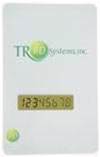For: Uses open source software.
Against: Installation and configuration requires an admin with considerable know-how in the Linux environment.
Verdict: For entire open source shops, this product is a winner; for other enterprises, this product is not ready for prime time.

The package recommends testing an installation with a few Linux distributions and these include Solaris 10, Fedora Core Linux 5 and 6, RedHat Enterprise Linux ES4 and AS4, as well as Ubuntu 6.10. The client need not be restricted to Linux or any other OS because there is no client to install.
The second unique component is its ability to embed RFID chips into the card for building or engaging proximity access. This allows one card to provide both physical and logical access.
The installation of TRI-D Systems 2Factor Flexible OTP Card is not for the faint of heart. We used Fedora Core 6 as our core OS and mounted the CD easily.
From there the install is in six separate files, each of which needs to be compiled, copied and installed separately. For the Linux administrator, this is not as difficult as it sounds, but for the new Linux administrator this process would be very difficult to undertake.
Documentation is sparse at best. The included documentation was a single text file with installation and configuration instructions. Text is necessary because of the Linux environment, but most Linux distributions also support PDF reading, which would allow for the instructions to be indexed and searchable.
Since the server software is free and most components are available as open source, support can be a bit difficult. To combat this, TRI-D offers many pay support options with varying costs. A full lifetime warranty on cards used in the OTP solution is included.
The pricing for the TRI-D Systems 2Factor Flexible OTP Card offering was in the mid-point of the price spectrum, starting at US$80 in low quantities.


_(33).jpg&h=140&w=231&c=1&s=0)
_(28).jpg&h=140&w=231&c=1&s=0)







 iTnews Benchmark Awards 2026
iTnews Benchmark Awards 2026
 iTnews Executive Retreat - Security Leaders Edition
iTnews Executive Retreat - Security Leaders Edition
 iTnews Cloud Covered Breakfast Summit
iTnews Cloud Covered Breakfast Summit
 The 2026 iAwards
The 2026 iAwards












_(1).jpg&h=140&w=231&c=1&s=0)



